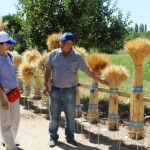
For the last decade, Kazakhstani farmers have suffered from the adverse effect of climate change. Impacts include variable rain patterns and early spring droughts.
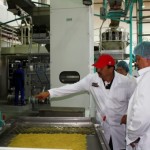
The Tsesna Astyk Group of Companies produces high-quality food products from domestic grain. USAID’s Regional Economic Cooperation Project (REC) has been working with Tsesna Astyk since 2012 to help the company meet international production standards.
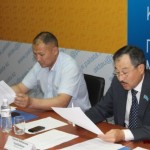
Squalid living conditions and social inequality in western Kazakhstan, against a backdrop of highly-profitable oil and gas extraction operations, has been inciting public tensions and dissatisfaction with the government and oil companies. Lack of effective dialogue between communities, civil society, government bodies and large commercial investors has added to the tensions.
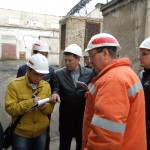
Under a new energy efficiency law passed in 2012, energy-intensive businesses and municipal buildings are required to reduce their energy consumption through energy-saving measures monitored by regular mandatory energy audits. Such monitoring requires the services of experienced energy auditors. Many companies have so far been unable to comply with these requirements, not because of a lack of commitment, but because of the insufficient supply of experienced energy auditors that can carry out this work.
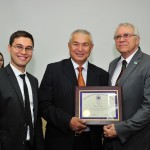
Since Kazakhstan’s adoption of a law on energy saving in 2012, the country has sought to grow its community of energy auditors and energy management professionals to help companies implement energy efficiency programs and boost economic growth.








Comment
Make a general inquiry or suggest an improvement.